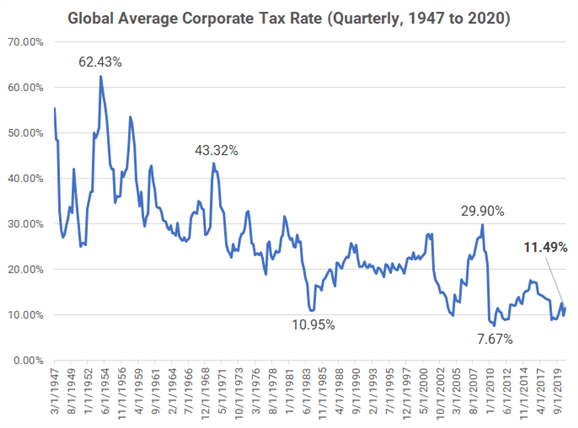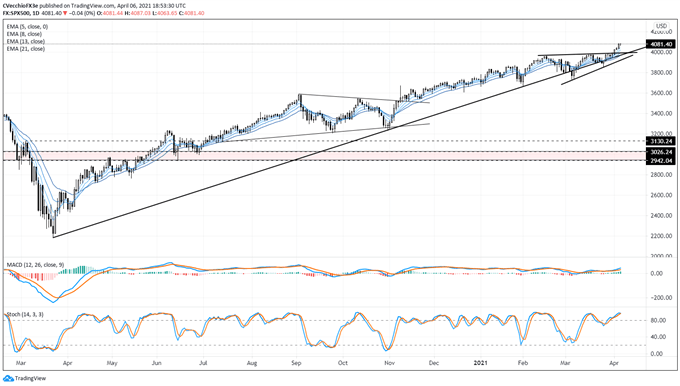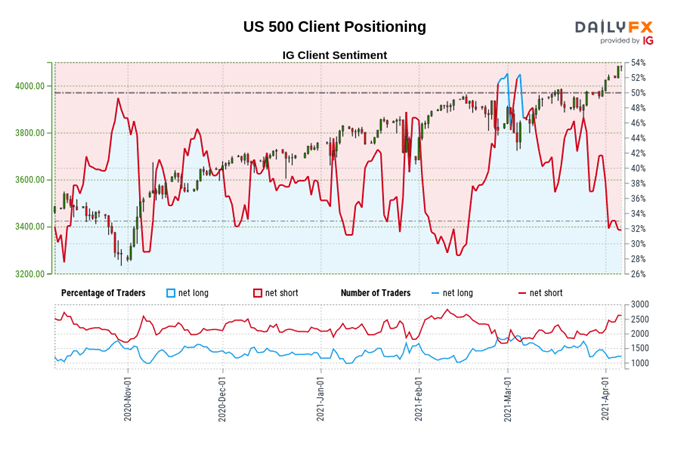US Stocks Hold Gains As Yellen's Global Minimum Tax Gains Support From EU, IMF
WHO PAYS THE BILL?
US stock markets have started April and 2Q’21 on strong footing, bolstered by a litany of factors beyond the improving US economy: the Biden administration’s fiscal stimulus plan; the Federal Reserve’s ongoing regime of low interest rates and cheap liquidity; and strong seasonal factors.
But just as the economic party is getting started, US fiscal authorities are beginning to think about moderating the punchbowl to, in a sense, help pay for the cost of the party: by raising corporate taxes and for income earners making $400,000 or more per year. Markets care far more about the former of the two, insofar as increased corporate tax rates can have a negative impact on the bottom line in the form of reduced earnings.
WHAT CHANGED IN RECENT YEARS?
In recent years, under the Trump administration and a Republican majority in the House and the Senate, the 2017 Tax Cuts and Jobs Act reduced the corporate tax rate from 35% to 21% in hopes of spurring economic growth. One of the secondary objectives of the legislation was to increase American competitiveness as a location for corporations to domicile their tax base after a slew of American-founded companies redomiciled abroad vis-à-vis “tax inversions,” e.g. the merger of Pfizer and Allergen. In other words, a secondary goal was to stop the “race to the bottom” by getting closer to the bottom itself.
Now, under the Biden administration and a Democratic majority in the House and the Senate, policymakers in Washington, D.C. are seeking to raise the corporate tax rate from 21%. Where to though? President Joe Biden himself has floated a 28% corporate tax rate. The influential West Virginian Senator Joe Manchin has suggested 25%. However, all of these initial discussion may be dead-ends if US Treasury Secretary has her way.
GLOBAL AVERAGE CORPORATE TAX RATE (1947 TO 2020) (CHART 1)

EU, IMF, OECD, YELLEN IN AGREEMENT
For years, the OECD has led a global effort (more than 140 countries in synchrony) to end the "race to the bottom" in corporate tax rates, with a recent push to have a framework in place sometime in 2021. This context makes what happened at the start of this week all the more interesting.
Yesterday, US Treasury Secretary Janet Yellen floated a proposal for developed economies to coordinate corporate tax policy in an attempt to end tax rate discrepancies across jurisdictions, which has created a “30-year race to the bottom.” The former Fed chair also said that it’s“important to work with other countries to end the pressures of tax competition and corporate tax base erosion.”
In effect, US Treasury Secretary Yellen has signaled her support for a global minimum tax rate for corporations – which conveniently dovetails with talks of corporate tax hikes in the US to pay for infrastructure. Yellen said that a global minimum tax is about “making sure that governments have stable tax systems that raise sufficient revenue to invest in essential public goods.”
And today, leaders from the EU, the International Monetary Fund (IMF), and elsewhere around the world offered their support to Yellen’s effort to see a global minimum tax passed across developed economies by the end of the first half of this year. German Finance Minister Olaf Scholz said he was in “high spirits” upon hearing Yellen’s commitment, while Japanese Finance Minister Taro Aso noted that Yellen’s remarks will help lead to “harmonization” of tax rates.
US S&P 500 TECHNICAL ANALYSIS: DAILY CHART (MARCH 2020 TO APRIL 2021) (CHART 2)

How Will Stock Markets React?
Thus far, the specter of higher US corporate tax rates has not spooked stock markets. In part, this may be due to the uncertainty of where the final level will settle as Democrats work out intraparty tensions between the more progressive House caucus and more centrist Senate caucus. But the other rationale may be that, in a world devoid of other alternatives thanks to a global minimum tax, there may be no reason to sell down equities in order to find a more efficient investment vehicle – either within American financial markets or abroad.
IG CLIENT SENTIMENT INDEX: US S&P 500 PRICE FORECAST (APRIL 6, 2021) (CHART 3)

US 500: Retail trader data shows 34.73% of traders are net-long with the ratio of traders short to long at 1.88 to 1. The number of traders net-long is 5.04% higher than yesterday and 6.75% lower from last week, while the number of traders net-short is 5.93% higher than yesterday and 23.54% higher from last week.
We typically take a contrarian view to crowd sentiment, and the fact traders are net-short suggests US 500 prices may continue to rise.
Traders are further net-short than yesterday and last week, and the combination of current sentiment and recent changes gives us a stronger US 500-bullish contrarian trading bias.



